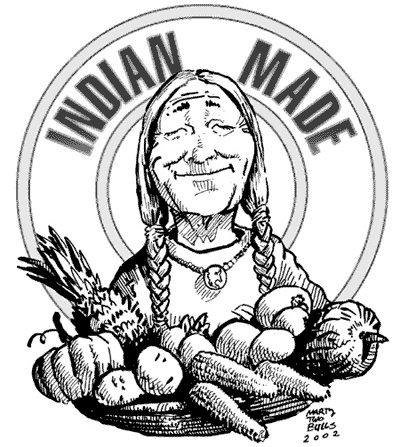In paying tribute to Native American achievements, we must also acknowledge the parts of our shared history that have been marred by violence and tragic mistreatment. For centuries, Native Americans faced cruelty, injustice, and broken promises. As we work together to forge a brighter future, we cannot shy away from the difficult aspects of our past. That is why, in 2009, I signed a bipartisan resolution that finally recognized the sad and painful chapters in our shared history. My Administration remains dedicated to writing a new chapter in that history by strengthening our government-to-government relationship with tribal nations while enhancing tribal sovereignty and tribal self-determination.
Because we know that the best ideas for tribal nations come from within, my Administration has continued to engage tribal leaders in developing an agenda that respects their expertise on matters affecting American Indians and Alaska Natives. In collaboration with tribal nations, we are making critical investments to improve health and education services, create jobs, and strengthen tribal economies. In July, I was proud to sign the Helping Expedite and Advance Responsible Tribal Homeownership (HEARTH) Act into law, which will enhance tribal control over the leasing of Indian lands. Last December, I signed an Executive Order to expand educational opportunities for Native American students. It aims to preserve Native languages, cultures, and histories while offering a competitive education that prepares young people to succeed in college and careers. And under the Tribal Law and Order Act and the Safe Indian Communities initiative, we are continuing to work with tribes to build safer communities. My Administration also supports the United Nations Declaration on the Rights of Indigenous Peoples.
Many longstanding Native American legal claims against the United States have been resolved, which will help accelerate the restoration of trust in our relationships with tribal nations. The settlements that came out of these claims--including the historic Cobell and Keepseagle settlements, as well as more than 50 settlements in cases alleging Federal mismanagement of tribal trust funds and resources--will put an end to decades of litigation and help drive economic development in tribal communities in the years to come.
In partnership with tribal nations, my Administration has addressed injustices and built new avenues of opportunity for American Indians and Alaska Natives. As we celebrate National Native American Heritage Month, let us move forward in the spirit of mutual understanding and mutual trust, confident that our challenges can be met and that our shared future is bright.
November is Native American Heritage Month and dedicated to celebrating and honoring the contributions of American Indians and Alaska Native people, cultures, and governments. Today, leading local and national Native organizations and institutions announced this year’s shared theme for the month; “Celebrating Native American Voices.”
The organizations are calling for the people and the governments of the United States to join Native people in celebrating the current and historic role the Native American voice has played in the United States. Central to the group’s efforts is www.NativeAmericanHeritageMonth.org, an online resource for learning more about this year’s events and theme.
The theme for the 2012 Native American Heritage Month is described in the following way:
“November is Native American Heritage Month and it’s an important time to celebrate the current and historic role the Native American voice has played in the United States. It’s a time to celebrate the modern and traditional cultures, people, and societies of Native American peoples. It’s also an opportunity to highlight the important contributions of Native peoples and the shared histories between tribal nations and other communities.”


No comments:
Post a Comment